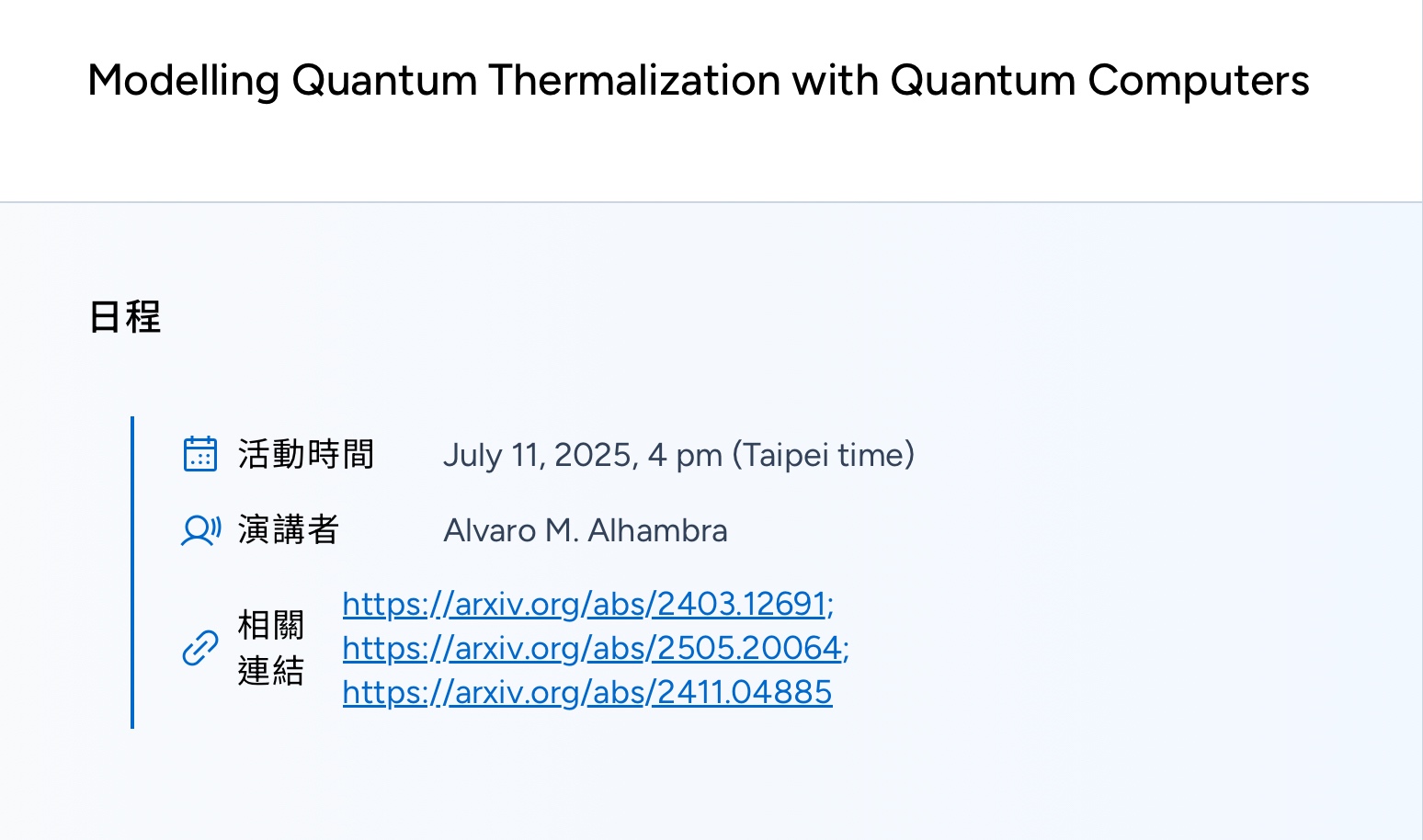
Modelling Quantum Thermalization with Quantum Computers
Schedule
Date
July 11, 2025, 4 pm (Taipei time)
Speaker
Alvaro M. Alhambra
Reference
Abstract
In quantum computing and simulation, one of our main goals is to efficiently mimic natural physical phenomena in a controlled manner. The process of thermalization is one such crucial task, for which recently there has been relevant progress. In this talk, we will showcase important parts of this progress by introducing a recent dissipative evolution that models thermalization in the many-body setting, and that is efficiently implementable in a quantum computer. We then prove the following facts about it: 1) It faithfully reproduces the dissipation induced by weak coupling to a bath. 2) In the high temperature regime, it very quickly approaches equilibrium. 3) In the low temperature regime, it yields a computational model with the same power as arbitrary quantum computations (BQP-complete). Taken together, our results show that this family of quasi-local dissipative evolutions has the potential to mirror the success of classical Monte Carlo methods.
Personal information
Dr. Alhambra is a staff scientist at the Institute for Theoretical Physics-CSIC in Madrid (Spain). He obtained his PhD in 2017 at University College London, and was later a postdoctoral researcher at Perimeter Institute in Canada, and the Max Planck Institute for Quantum Optics in Germany, where he was a Humboldt fellow. His research is at the interface of statistical and many-body physics with quantum information and computation, with a mathematical perspective. He has worked on non-equilibrium and thermodynamics of quantum systems, and on their complexity and simulatability through both classical and quantum algorithms.
Post Date
July 8, 2025
Centers
Topic


